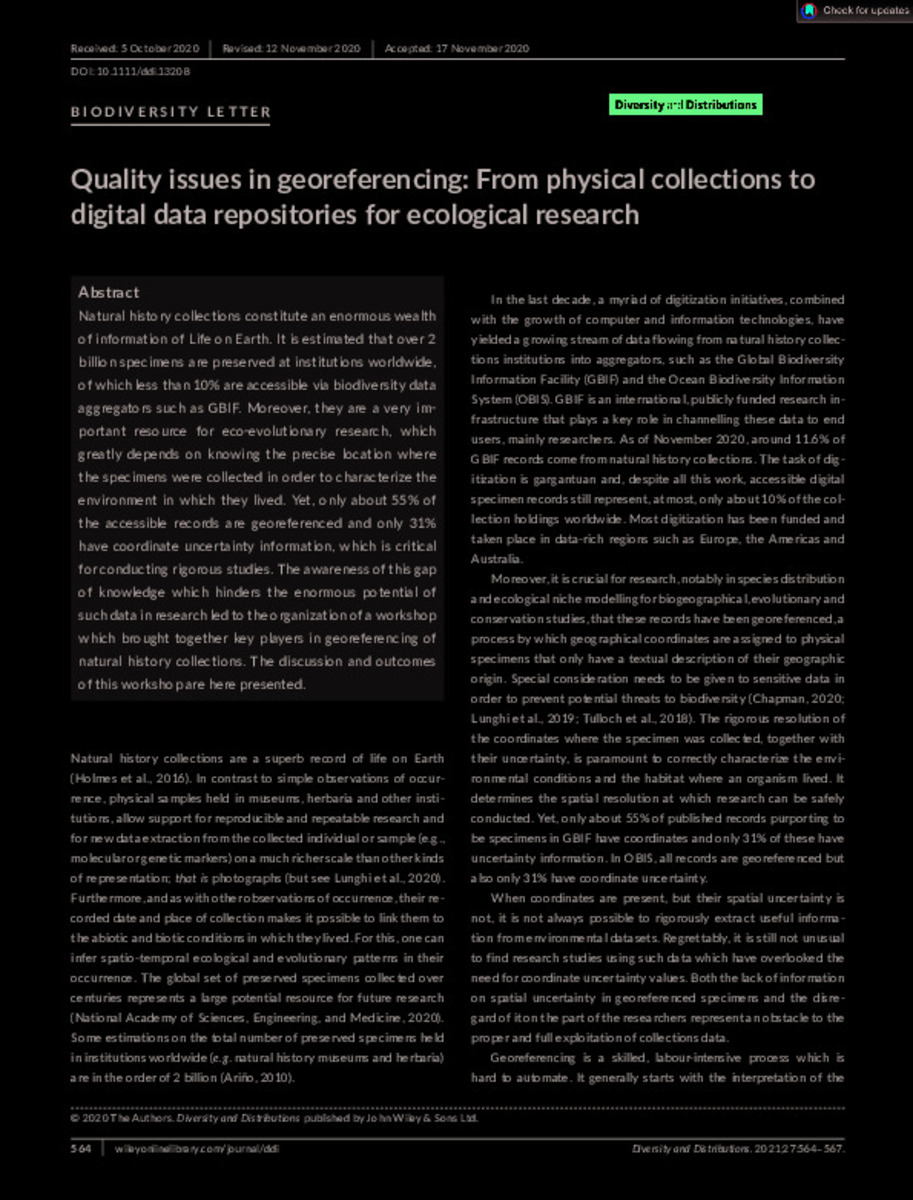Quality issues in georeferencing: from physical collections to digital data repositories for ecological research
Keywords:
Evolutionary research
Global biodiversity information facility
Georeferencing
Natural history collections
Uncertainty
Workshop
Project:
EU Cost Action CA17106
Citation:
Marcer, A. (Arnald); Haston, E. (Elspeth); Groom, Q. (Quentin); et al. "Quality issues in georeferencing: from physical collections to digital data repositories for ecological research". Diversity and Distributions. 27 (3), 2020, 564 - 567
Statistics and impact
0 citas en

0 citas en

Items in Dadun are protected by copyright, with all rights reserved, unless otherwise indicated.











